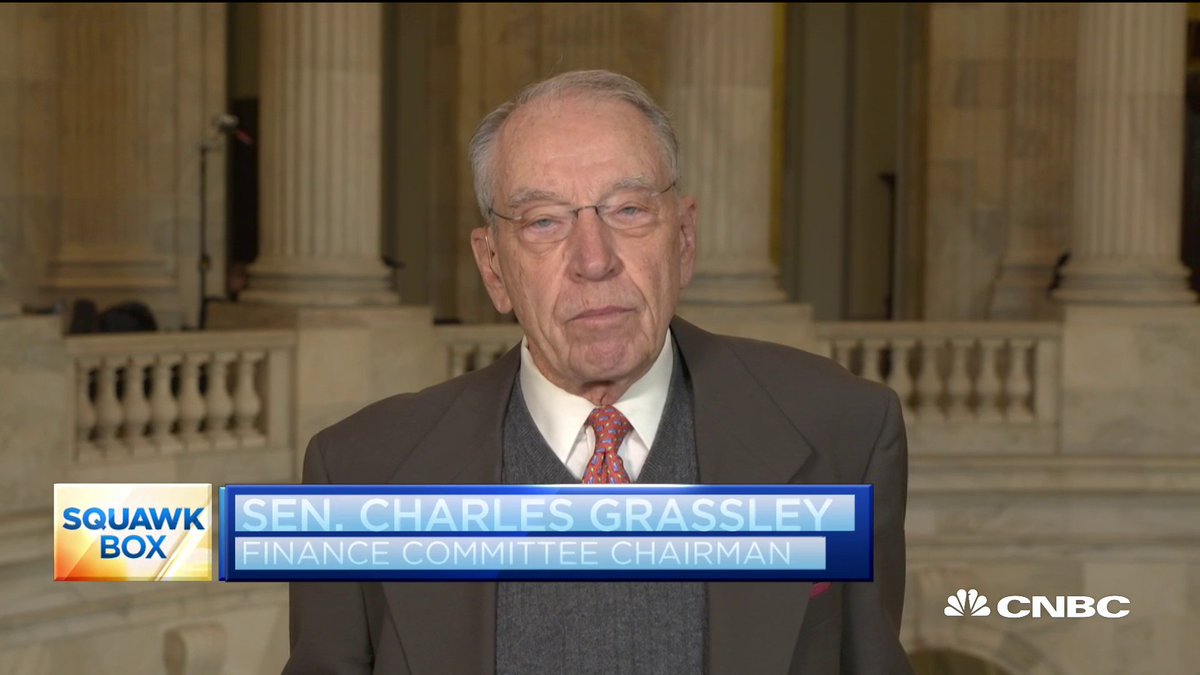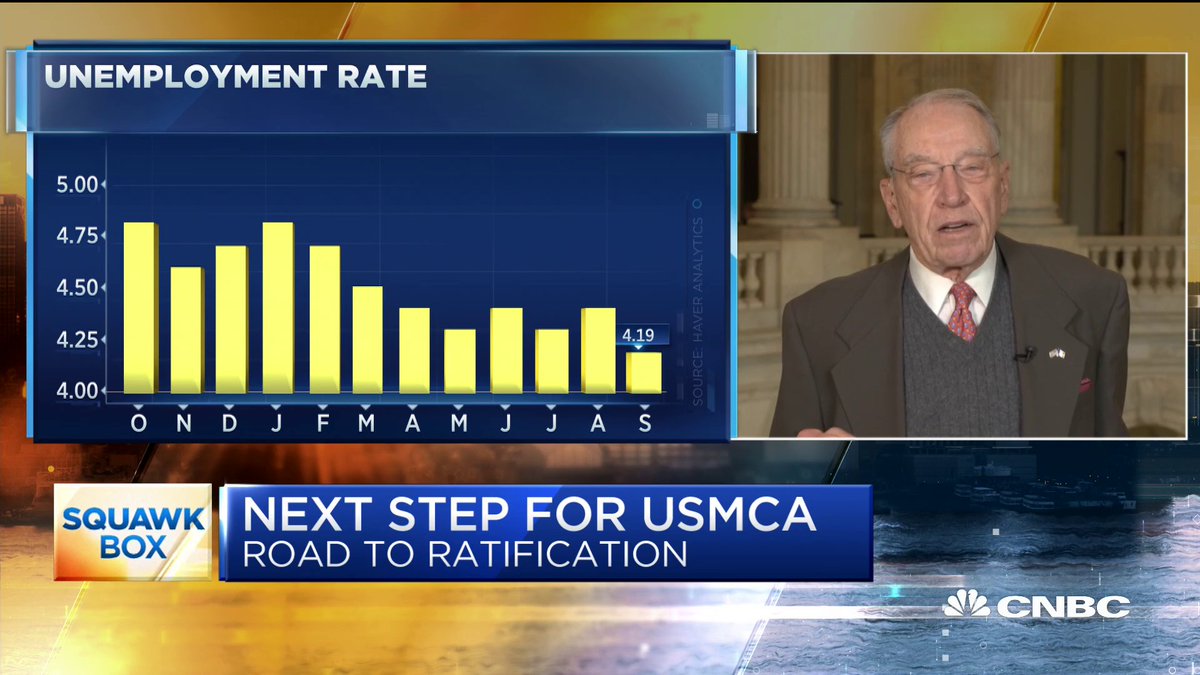USMCA Moving Forward, Timeline Uncertain
William Mauldin reported in Wednesday’s Wall Street Journal that, “A Senate committee approved a replacement for the North American Free Trade Agreement, despite criticism from some lawmakers that it lacks sufficient protections for U.S. companies.
“The Senate Finance Committee voted 25 to 3 on Tuesday to back the U.S.-Mexico-Canada Agreement, a pact negotiated with the two neighboring nations by the Trump administration.
“The 2018 deal was amended late last year at the insistence of House Democrats, who demanded more enforcement provisions for the pact’s new labor rules. The House easily passed legislation to implement the agreement in December.”
After several yrs of hard work USMCA just passed out of Sen Finance Cmte 25-3 BIG bipartisan support for trade deal is a historic win Congrats to @realDonaldTrump +USTR Amb Lighthizer +the USA! USMCA is good news for workers/manufacturers/farmers & all Americans

“If Mrs. Pelosi forwards the articles of impeachment to the Senate then a vote would occur later this winter, according to Finance Committee Chairman Chuck Grassley (R., Iowa).”
USMCA will pass the Senate by the end of January at the latest, says @ChuckGrassley
The Senate Finance Committee voted 25-3 on Tuesday to advance the legislation to implement the U.S.-Mexico-Canada trade deal. However, the accord was also referred to six other panels that could take weeks to consider it, even though the committees can’t change the content of the deal.
“The committees on Health, Education, Labor, and Pensions; Environment and Public Works; Appropriations; Foreign Relations; Commerce, Science, and Transportation; and Budget haven’t announced whether they will take time to examine it.”
The Budget Committee and the Environment and Public Works Committee will both vote Tuesday on the trade pact, while the Commerce Committee and the Committee on Health, Education, Labor and Pension will take up the agreement Wednesday, committee aides said https://twitter.com/POLITICOPro/status/1215013052418084864 …
POLITICO Pro
✔@POLITICOPro
Senate Commerce Committee to vote Jan. 15 on USMCA. More from @tradereporter http://bit.ly/39Rvphi
Senate Foreign Relations intends to markup USMCA bill next Thursday. Appropriations also plans a markup, but has not settled on a date. That makes a total of a seven committee votes, when all said and done. That’s a crazy amount of committee votes on a trade deal.
Mr. Wasson explained that, “Republican Senator Chuck Grassley, the Finance chairman, told reporters before the hearing that he only learned Monday of the referral to other panels and that he thinks it is ‘going to be a problem.’
“‘But the real problem is the extent that we don’t know when we are going to get the articles of impeachment. When those articles enter into the Senate chamber that has priority over everything else,’ he said. ‘If I wanted to speculate, and if they don’t come over for another week or 10 days, we can get this done. If the articles of impeachment come over it could be two, three, four weeks before we can get this done.’”
“It’s going to be very good for agriculture, very good for manufacturing,” says @ChuckGrassley on impact of USMCA on the U.S. economy. “It covers a lot of things that wouldn’t have been thought of 30 years ago” such as intellectual property and data trading.
And more broadly on trade related issues going forward, Niv Elis reported on Wednesday at The Hill Online that, “Senate Finance Committee Chairman Chuck Grassley (R-Iowa) said Wednesday that he wanted to advance legislation reining in presidential authority on tariffs in 2020.
“‘That’s been a goal of mine and is still a goal,’ Grassley said of legislation to reform section 232 of the 1962 Trade Expansion Act, which President Trump has used to impose major tariffs on close U.S. trade partners.
“Section 232 gives the president authority to impose tariffs for national security purposes. Trump’s trade critics accused him of abusing the authority by imposing steep steel and aluminum tariffs on U.S. allies such as Canada, Mexico, the European Union and Japan.”
Source: Keith Good, Farm Policy News





